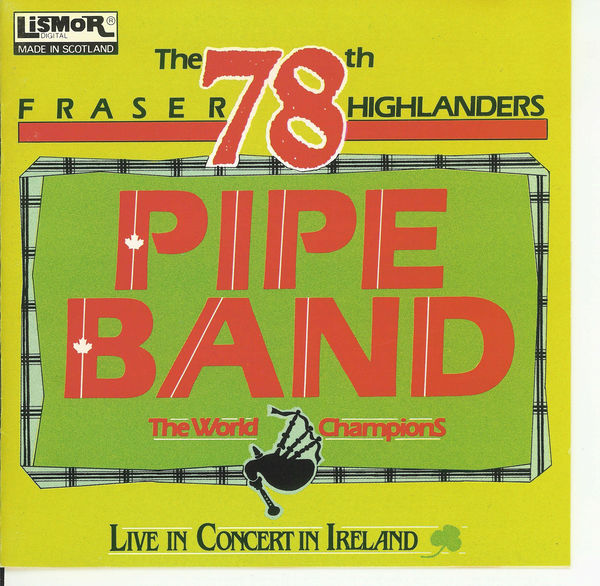Fond farewell
 Two years ago, after about eight years away from it, I was looking for a piping change, so had another go at solo competition. I’d stopped shortly after my mother died suddenly in 2003, having lost the desire to keep at it, and, then, too, needing a change.
Two years ago, after about eight years away from it, I was looking for a piping change, so had another go at solo competition. I’d stopped shortly after my mother died suddenly in 2003, having lost the desire to keep at it, and, then, too, needing a change.
Going back to solo piping at age 48 was a combination of desires. I wanted to see if I could still play to the standard and I thought it would be more interesting to be among solo pipers, who share a unique bond of understanding, empathy and respect.
That first season back was okay, but re-understanding the solo competition instrument and the set-up, the myriad choices of bags and reeds and moisture gubbins and gizmos was in itself a new art to master. It was particularly humid summer around these parts in 2013, and wrestling with a natural bag and wetness made things interesting. But some decent prizes came around – enough to keep me at it.
The 2014 competition season was fun. I made some changes to the instrument, figured out the right moisture controlling combination, and got up and submitted tunes I particularly enjoyed playing. Even though I was practicing less, I was playing as well as ever I could remember, though the memory can play tricks on you, as we all know.
People say that they “don’t have time” to do things. That’s never true. There is always time to do whatever you wish in life. Saying you don’t have time for something is really saying you don’t make that something a priority over other things. There is time; you just have to decide how to prioritize it with the other stuff. People might be amazed at those who seem to “have the time” to get things done. I tend to believe they’re more often envious of another’s better ability to prioritize.
Competitive solo piping is a mainly selfish conceit. No one but you particularly cares about your prizes. If you’re lucky and good enough, you might occasionally compete before an appreciative audience, but far more often there’s no one listening but the judge, or a few fellow competitors half-paying attention. That’s just the way it is.
I thought that after the 2014 season I’d simply keep it going. But a few weeks away from practicing turned into a few months, and, after several months of not practicing, getting game-ready is hard. The Highland pipe is maybe the most physically demanding of musical instruments. In some way, you’re as much an athlete as you are a musician.
My priorities changed again. I had and have the time to practice, but I have chosen not to. What am I trying to prove that I haven’t proven already to myself and to anyone who might care? At 51, did I want to risk being that guy: the competitor whose skills have eluded him but doesn’t realize what’s happened and gamefully presses on, fingers flailing and failing, pipers mumbling about the bumbling, wondering, Why’s he still at it?
I’ve written before about stopping while the goin’s are still good. The last time I competed was in the Professional Piobaireachd on Saturday, August 2, 2014, at Maxville, Ontario. I was last to play, before a judge, a steward, one or two passers-by, and a lot of bugs. The tune was “The Old Men of the Shells” – one that I have always enjoyed playing. The instrument held. The mind stayed focused. The hands didn’t fail. The smell of fresh-cut grass filled the early afternoon air in the bright Glengarry County sunshine. The thump of bass drums was in the distance, but all felt quiet, the music taking me at least to another place in space and time. And later I was uplifted again by the result.
I can’t think of a better way to end a solo competition career. It’s all I could ever ask of the instrument, or of the music, or of myself. It’s a high that only the brethren of pipers can understand, and the right note, I think, on which to say farewell to the boards. If I haven’t always been good to them, they have certainly been good to me.
So, thank you to anyone who might have listened to me compete since 1976. Thank you for your comments. Thank you to all teachers. Thanks to my long-gone-now parents for the support and spurring me on. Thanks to every fellow competitor and the unique camaraderie of solo pipers. Thank you to the stewards. Thank you to the organizers of the contests. Thanks to the reedmakers, bag-makers and whoever it was in 1936 why made those drones in the old R.G. Lawrie shop. Thanks to the people who created the music. Thank you to the judges who lent their ear and their knowledge. Thanks to the family who put up with the practice.
I’ll remember the thrill and joy of competing well. Thanks.


